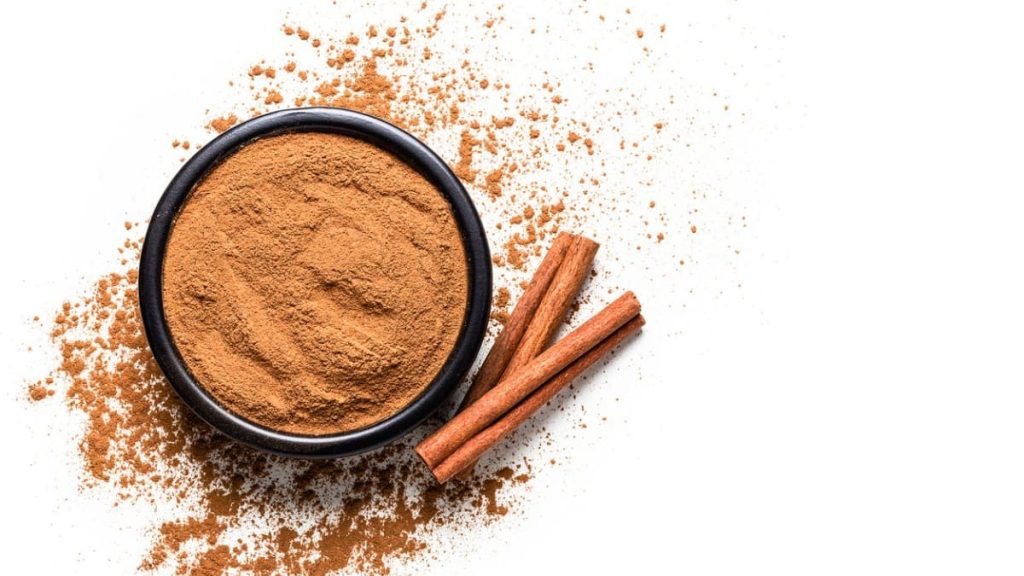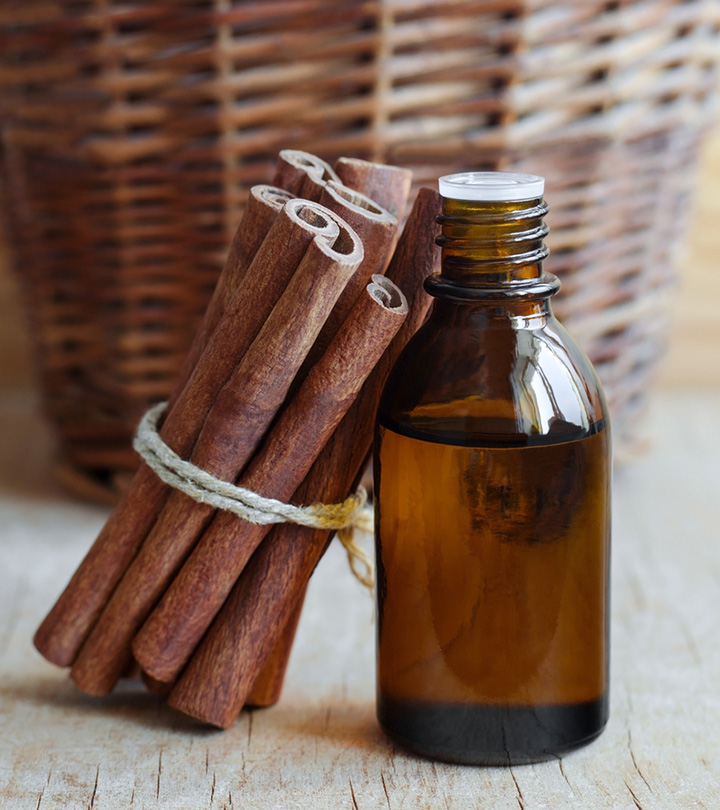Cinnamon, a widely used spice in culinary delights, also finds applications in cosmetics and personal care products. This aromatic spice, derived from the inner bark of Cinnamomum trees, has been utilized for centuries in various cultures for its potential health and beauty benefits.

In this comprehensive exploration of cinnamon in cosmetics, we will delve into its uses, benefits, and potential risks to better understand how this natural ingredient contributes to the beauty industry.
The history of cinnamon in cosmetics
The history of cinnamon in cosmetics dates back to ancient civilizations, where it was prized for its fragrance and medicinal properties. The ancient Egyptians used cinnamon in their embalming rituals due to its pleasant aroma. In traditional Chinese medicine, cinnamon promotes healthy skin and improves circulation. Over time, its use spread to other parts of the world, and cinnamon became an essential ingredient in various beauty and skincare practices.
Types of Cinnamon Used in Cosmetics
Two primary types of cinnamon are commonly used in cosmetics: Ceylon cinnamon (Cinnamomum verum) and Cassia cinnamon (Cinnamomum cassia). Ceylon cinnamon, also known as “true cinnamon,” is considered milder and sweeter in flavor and aroma, making it a popular choice in premium cosmetic products. On the other hand, Cassia cinnamon has a more intense, spicy aroma and is commonly used in less expensive cosmetic formulations.

Cosmetic Uses of Cinnamon
Fragrance: The fragrance of cinnamon is warm, inviting, and aromatic. It exudes a sweet and spicy aroma that evokes a sense of comfort and coziness. The scent of cinnamon is instantly recognizable and often associated with festive occasions and comforting treats.
Its alluring fragrance makes it popular in perfumes, body sprays, scented candles, and other aromatic products. Whether used alone or blended with additional notes, the captivating scent of cinnamon adds a delightful and comforting element to various sensory experiences.
Antioxidant Properties: Cinnamon possesses antioxidant properties due to the presence of compounds like cinnamaldehyde and cinnamic acid. These antioxidants help neutralize free radicals, unstable molecules that can cause cellular damage and oxidative stress in the body.
Cinnamon may reduce oxidative damage and potentially offer protective effects against certain diseases by scavenging these harmful free radicals. Its antioxidant properties make it a valuable natural ingredient in culinary dishes and cosmetic formulations, providing potential health and beauty benefits.
Skin Conditioning: Cinnamon offers skin conditioning properties, making it beneficial in skincare products. Cinnamon can help soothe dry or irritated areas when applied to the skin, leaving the skin feeling soft and supple.
The spice’s natural compounds, such as cinnamaldehyde, contribute to its skin-conditioning effects by promoting hydration and maintaining the skin’s moisture barrier. Additionally, cinnamon’s potential anti-inflammatory properties may help reduce redness and irritation, contributing to overall skin health.
As a result, cinnamon is commonly found in creams, lotions, and other skincare formulations, providing users with its soothing and nourishing benefits.
Anti-Inflammatory Effects: Cinnamon has demonstrated potential anti-inflammatory effects, primarily attributed to its active compound, cinnamaldehyde. When applied to the skin, this natural compound possesses anti-inflammatory properties that can help reduce inflammation and redness.
As a result, cinnamon may be beneficial in soothing irritated or sensitive skin, making it an attractive ingredient in skincare products targeted at addressing inflammation and related skin concerns.
While more research is needed to fully understand its mechanisms, cinnamon’s anti-inflammatory properties offer promising applications in cosmetics and skincare formulations, potentially contributing to healthier and calmer skin.
Exfoliation: Cinnamon is occasionally used in skincare products for its exfoliating properties. Cinnamon helps gently remove dead skin cells and unclog pores, promoting a smoother and more radiant complexion when incorporated into facial scrubs or exfoliating products.
The fine particles in the ground cinnamon act as a natural exfoliant, aiding in removing impurities and revealing fresher skin. However, due to its potential to cause skin irritation, cinnamon should be used cautiously, especially on sensitive or reactive skin types. Always perform a patch test before trying any new exfoliating product containing cinnamon.
Plumping and Enhancing Lip Products: Cinnamon’s natural warming sensation makes it a popular choice in lip products for its temporary plumping effect. Cinnamon can cause a mild tingling sensation when applied to the lips, leading to a temporary increase in blood flow to the area. This increased blood flow can make the lips appear fuller and more voluminous.
Additionally, cinnamon’s warm and inviting aroma adds a pleasant fragrance to lip balms, glosses, and lipsticks, enhancing the overall sensory experience of using these products. However, individuals with sensitive lips should use cinnamon-infused lip products cautiously to avoid discomfort or irritation.

Hair Care: Cinnamon is occasionally used in hair care products due to its potential benefits for the scalp and hair. When applied to the scalp, the spice is believed to improve blood circulation, which may support healthier hair growth. Some hair care formulations incorporate cinnamon extracts or oils to nourish and moisturize the hair, potentially adding shine and softness.
Additionally, cinnamon’s warm and inviting fragrance can enhance the overall sensory experience of using hair products. However, as with any ingredient, using cinnamon-infused hair products in moderation is essential to avoid any adverse reactions, especially for individuals with sensitive scalps or allergies.
Natural Preservative: Cinnamon’s antimicrobial properties have historically been utilized as a natural preservative in various products, including cosmetics and skincare formulations. The active compounds in cinnamon, such as cinnamaldehyde, have been shown to possess antimicrobial and antifungal properties, which can help inhibit the growth of bacteria and other microorganisms.
By incorporating cinnamon extracts or oils into cosmetic products, manufacturers can potentially extend the shelf life of these products and reduce the need for synthetic preservatives. However, it’s essential to conduct proper testing and formulation to ensure the effectiveness and safety of cinnamon as a natural preservative in cosmetic products.
Cosmetic Formulations with Cinnamon

- Cinnamon-Infused Oils: Cinnamon is often infused into carrier oils like coconut oil, jojoba oil, or sweet almond oil to create aromatic and nourishing oils for massages or as ingredients in skincare products.
- Cinnamon-Infused Water or Hydrosols: Cinnamon can be infused into water and used as a refreshing facial mist or toner with potential antioxidant and anti-inflammatory benefits.
- Cinnamon-Containing Creams and Lotions: Cosmetic creams and lotions may contain cinnamon extracts or oils to provide skin-conditioning and antioxidant benefits.
- Cinnamon in Lip Balms and Glosses: The plumping and warming effects of cinnamon make it a popular choice for lip balms and glosses, giving a fuller appearance to the lips.
- Cinnamon-Scented Perfumes and Body Sprays: Cinnamon’s warm and inviting fragrance is a common addition to perfumes and body sprays, offering a comforting and appealing scent.
- Cinnamon-Infused Hair Products: Hair products such as shampoos and conditioners may contain cinnamon extracts or oils for potential benefits for the scalp and hair.
Potential Risks and Precautions
While cinnamon can offer various benefits in cosmetics, it’s essential to be aware of potential risks and exercise caution when using cinnamon products. Some individuals may be sensitive or allergic to cinnamon, and its application on the skin may cause irritation or redness. Before using new cosmetic products containing cinnamon, patch testing is recommended to check for any adverse reactions.
Additionally, the cinnamon essential oil is potent and should always be diluted properly before use, as the direct application may cause skin irritation. Pregnant and breastfeeding individuals should consult with a healthcare professional before using cinnamon products due to their potential effects on specific health conditions.

Conclusion
Cinnamon’s long history of use in cosmetics highlights its appeal as a natural and versatile ingredient in personal care products. Cinnamon adds a warm and comforting touch to various cosmetic formulations, from fragrance to skincare benefits. However, it is crucial to approach its usage cautiously and adhere to safety guidelines to avoid potential adverse reactions.
As the beauty industry continues to explore the potential of natural ingredients, cinnamon’s role will likely remain significant in cosmetics.
